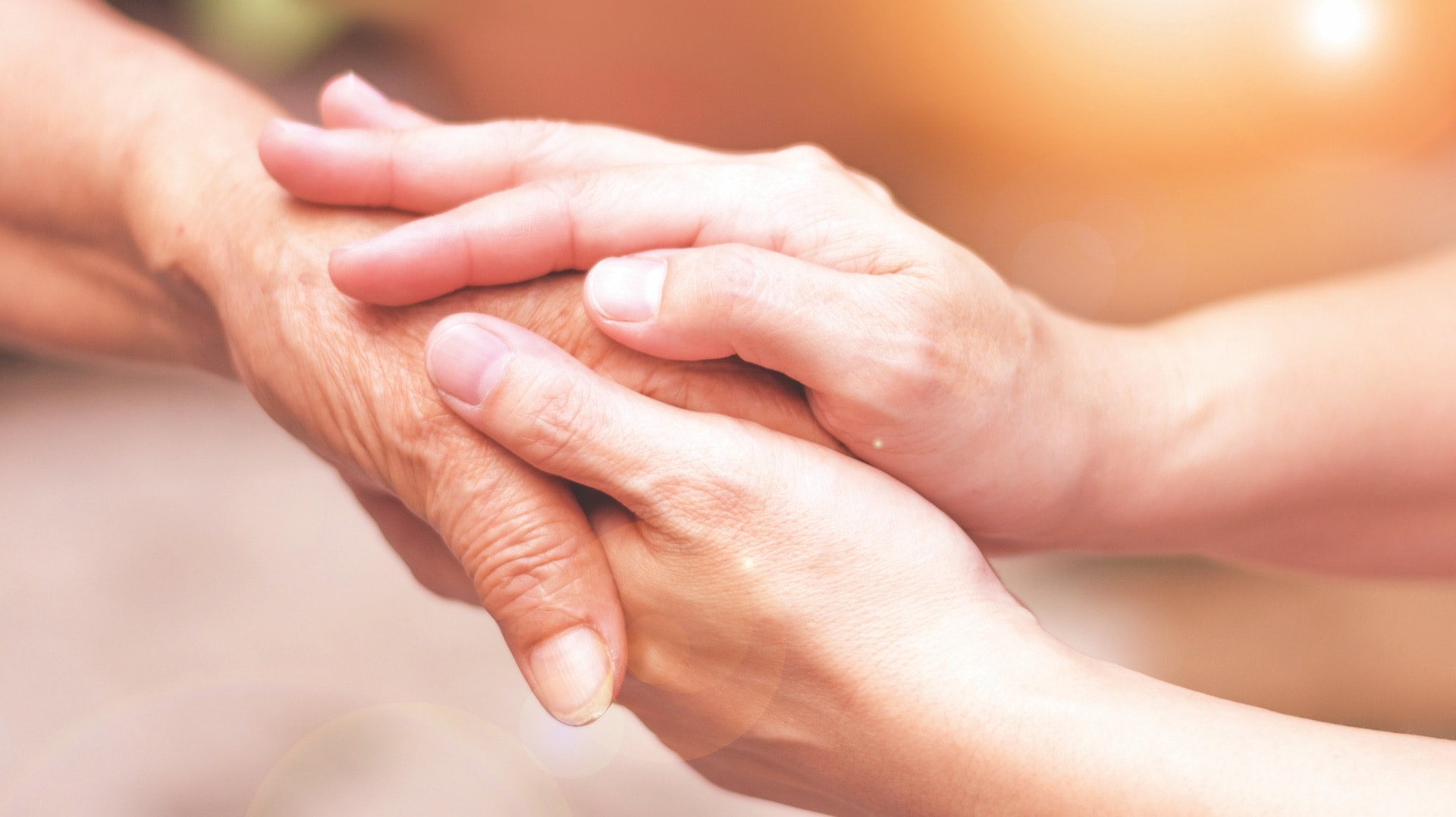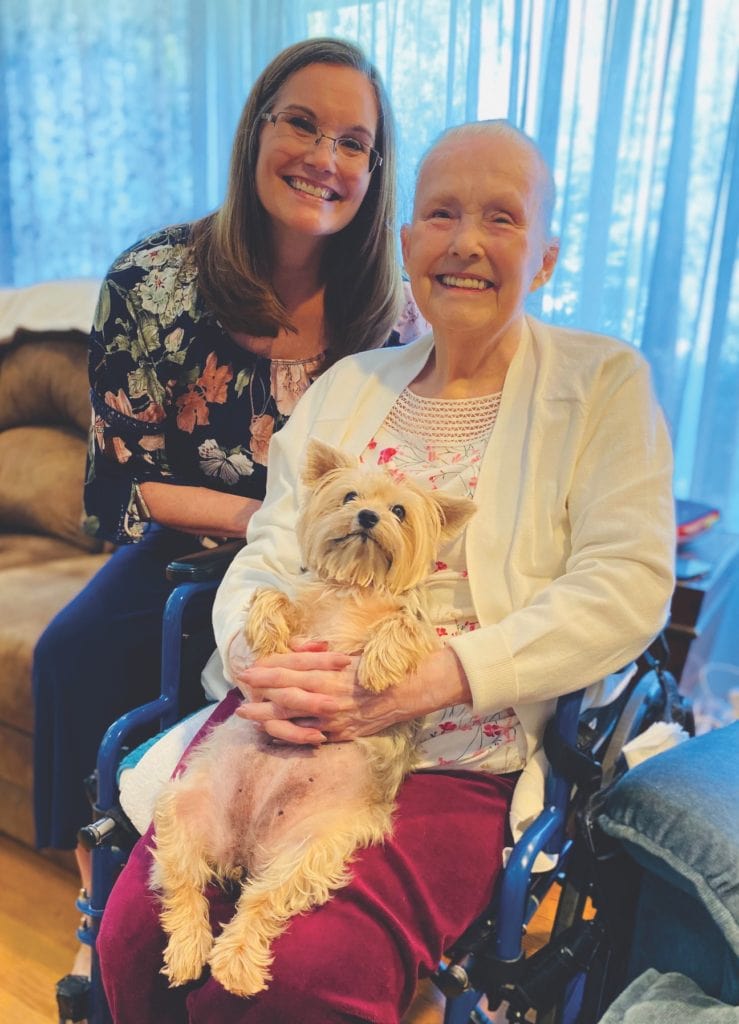
Caregiving is a part of the human experience. Each of us, at some point, will find ourselves caring for someone else. Sometimes it is planned, such as the joyous welcome of a first child. But other times caregiving lands in our lap suddenly and unexpectedly—the phone call announcing an accident; the family member diagnosed with a terminal illness; the child who develops special needs; or more commonly, aging parents. We find ourselves juggling life and suddenly adding caregiver on top of everything else.
Aging parents want to hold on tightly to independence for as long as they can—and so they should. But one day the realization dawns they can no longer live alone. This often comes because of an accident or a trip to the emergency room. Sometimes a hospital social worker helps everyone to recognize the days of independence are past. This is what happened with us. Sure, we noticed Mom slowing down, becoming frailer, and suggested many times it was time for her to move in with us, but our invitations were always turned down, which we gladly accepted. After all, we were busy with our own family’s needs, out in the mission field, working and serving on behalf of the church.
My husband and I are part of the “sandwich generation” and began the journey of juggling the parenting of college-age kids while caring for my 92-year-old mother in September 2019. The opportunity to care for my mom is a blessing, and a small way I can repay her for all her care and unselfish sacrifice over the years. In trying to make wonderful memories together in her golden years, we spend time listening to her stories, putting puzzles together, crocheting , reading , singing , laughing, reminiscing, eating meals, and, of course, watching Wheel of Fortune together. This isn’t actually a full picture of our reality, but we often don’t like to talk about the more difficult aspects of caregiving. The truth is this journey is hard, demanding, exhausting, and messy. I juggle my mother’s care, along with the rest of my family needs, all while working full-time. I did not imagine then, nor could I have predicted, how hard it would be. Although an adult, I still saw my mom as my caregiver. I had visions of all the things she would help us with around the house. I soon realized I had to adjust my expectations and face the reality that I was now the caregiver, along with help from my family. Together we have learned much.
We have looked at the cost of assisted living or having someone come to our home to help with her care, realizing that there are insufficient funds to pay for such luxuries. We have discussed the hymns and Bible verses she would like at her memorial service when the time comes. We have had discussions about wills and advance directives. These are important conversations and seem to usually take place during family worship when we sing her favorite hymn, “Blessed Assurance.”
People tell me that caring for an elderly parent is like caring for a toddler. With toddlers it’s about teaching them and celebrating each new skill. Yes, it is exhausting, but exciting and joyful to know they are maturing and reaching independence. Caring for aging parents is similar, but in reverse.
The one who taught you everything loses, little by little, their independence and ability to do things, and you mourn the loss of each skill. This, I believe, is the hardest thing about caring for an elderly parent. Yet, as Christians, we make the best of it, celebrating our life in Jesus, knowing we can look forward to a time when there will be no wheelchairs, hearing aids, rubber gloves, diapers, or bedpans, no arthritis, acid reflux, infections, or diseases.
Caregiving can be challenging, responsibilities heavy, and demands overwhelming, but it presents an opportunity to lean on Jesus for strength we do not possess on our own and to look beyond the challenges to the God who cares. When we honor and care for our parents, we are not only obeying the fifth commandment; we are serving and honoring God as well. As challenging as it is to care for my mom, with God’s help and His promise in 2 Corinthians 12:9, I am able to honor her and cherish these moments, because moments with Marilyn are truly a gift, and I wouldn’t change them for anything.
